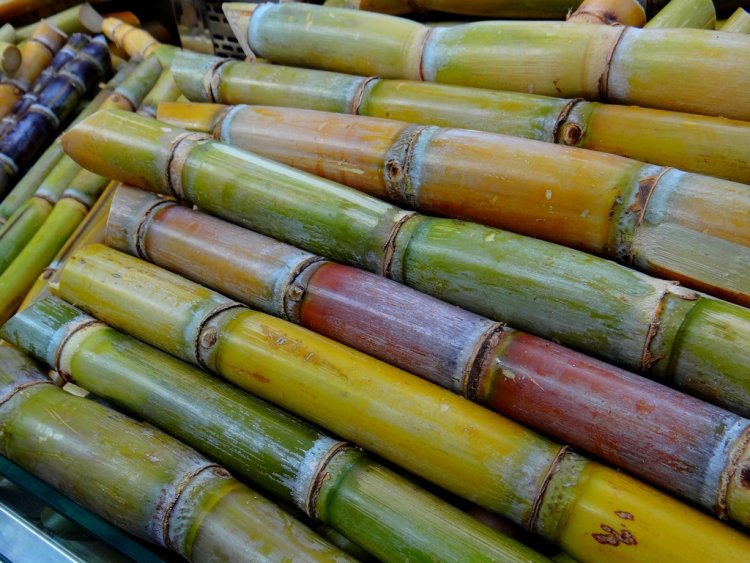What is Organic Cane Sugar? 5 Revealing Facts

JAMAICA, NEW YORK, US: There are so many different sweeteners and sugar substitutes that it can be hard to decide which ones are best to consume.
Sugar beets account for 90% of the table sugar consumed in the United States. On the other hand, that granulated material has essentially nothing to do with the root vegetable from which it's derived. Nature's gift of the sugar beet bears little similarity to the manufactured, dried crystalline sugar they've become after the refining procedure.
Organic cane sugar is unrefined sugar that has been grown without the cancer-causing and environmentally harmful chemicals used to grow sugarcane in most places where sugarcane is grown. Cane sugar made from organic cane has a full-bodied sugarcane taste and is less processed than white sugar, which loses many of the cane juice's nutrients when made into sugar. There are a lot of fibers in the stalks of sugarcane plants that are rich in sucrose. Tropical Southeast Asia and New Guinea were the original places where this sugarcane is grown, but they are now grown worldwide in warm, moderate climates.
Interesting facts that will interest you to know about sugarcane:
• In terms of output, sugarcane is the world's most abundant crop.
• At least 64 million acres of it are grown in 90 countries. Brazil makes 40% of the world's cane sugar, made from sugar cane.
• Sugarcane converts into table sugar in mills that specialize in that process. To make ethanol, you can either use it as a sweetener or make it an alcoholic drink product of sugarcane, including rum, cachaça, molasses, and bagasse.
• Sugarcane has been used for centuries, eaten in Madagascar, Polynesia, and some parts of Asia thousands of years ago.
• In the 18th century, the Caribbean, South America, the Indian Ocean, the Pacific Islands were the first visible sugarcane plantations.
Types of cane sugar include:
Cane sugar that's not crystallized is known as evaporated sugar or less processed sugar. The molasses separate from the sugar crystals in a centrifuge, then steam and water are added in the final phase, then grounded into a powder.
1. Raw sugarcane or pure sugarcane:
Some producers use "sugar in the raw" to refer to demerara and turbinado sugars, which are single-crystallization sugars that have been washed with steam in a centrifuge to remove some molasses. The molasses inside each crystal, on the other hand, is unaffected by the heat.
2. Sugarcane Juice:
It is produced by mixing sugar juice with lemon juice and other ingredients.
3. Brown sugar:
It is made up of crystallized sugar and molasses; it tastes like caramel. Molasses are sometimes put back in ordinary white or organic cane sugar, and in crystallized sugar cane, molasses are not removed or only partially removed.
Organic Cane Sugar Vs. White Sugar
Some health professionals have constantly condemned sugar as the sole source of obesity. The truth is that if humans were never supposed to eat sweet things, our tongues should have been empty of sweet taste receptors.
Organic cane sugar is unrefined sugar cultivated without the cancer-causing and environmentally harmful chemicals found in commonly farmed sugarcane. Organic cane sugar has a soft color similar to turbinado or raw sugar, indicating less processed than other healthy sweeteners.
White sugar is probably the most commonly used sweetener in American kitchens, from baked products to drinks. The crystallized sucrose derived from sugarcane or sugar beets is white sugar. After harvesting sugarcane or sugar beets, the juice is collected and cooked to eliminate moisture. The natural sucrose in the juice settles when the humidity in the juice diminishes. Other extracts, like molasses, are left behind after the crystallized sugar is complete.
Sugar aids in crucial chemical processes during heating and baking and provides sweetness in baked goods and drinks. Sugar helps baked products and other meals retain moisture, making them smooth and pliable.
Is Organic Cane Sugar Healthy?
Organic sugar is high in polyphenols, phytonutrients, and other vitamins and minerals like calcium, potassium, magnesium, manganese, and iron. A simple analysis shows that organic sugar is not healthier nutritionally or superior to conventional sugar.
Table sugar has 99.95 percent sucrose, and ordinary sugar has 97 to 99 percent sucrose. In both sugars, the remainder is mainly water, and the glycemic index of all of them is about 60. Too much added sugar, especially organic sugar, may elevate blood pressure and cause chronic inflammation.
People who eat too many sugary drinks are more likely to gain weight because they fool their body's appetite-control system into thinking that liquid calories from solid meals aren't enough to make them feel full.
Higher blood pressure, inflammation, weight gain, diabetes, and fatty liver disease contribute to an elevated risk of heart attack and stroke when additional sugar is consumed. Sugar intake is associated with a high incidence of esophageal cancer, pleural cancer, and small intestine cancer from the research of over 430,000 participants.
What Does Organic Cane Sugar Taste Like?
Organic cane sugar has a taste comparable to that of other sugars. As for organic cane sugar, it's not quite as simple as the different kinds of sugar. Each crystal is made with actual molasses, which gives the sugar a smoky and deeper taste. Because of the molasses, this sugar smells slightly different from other sugar. This organic cane sugar smells sweet, a little tangy, and just the right amount of earthy.
Organic cane sugar has a more grainy feel than refined, non-organic sugars. It undergoes a lot less processing which makes the crystals not grounded. Also, this sugar is blonde, almost yellow. It's sugar with a bit of fun in it! Organic cane sugar is just as sweet as table sugar.
Health Benefits of Organic Cane Sugar
Why Is Organic cane sugar healthy? Sugarcane is a low-cholesterol, low-sodium meal that doesn't have any fat or cholesterol when it's eaten fresh. Raw sugar made from sugarcane has no fat, cholesterol, or salt. A 1-teaspoon serving has just 15 calories.















































